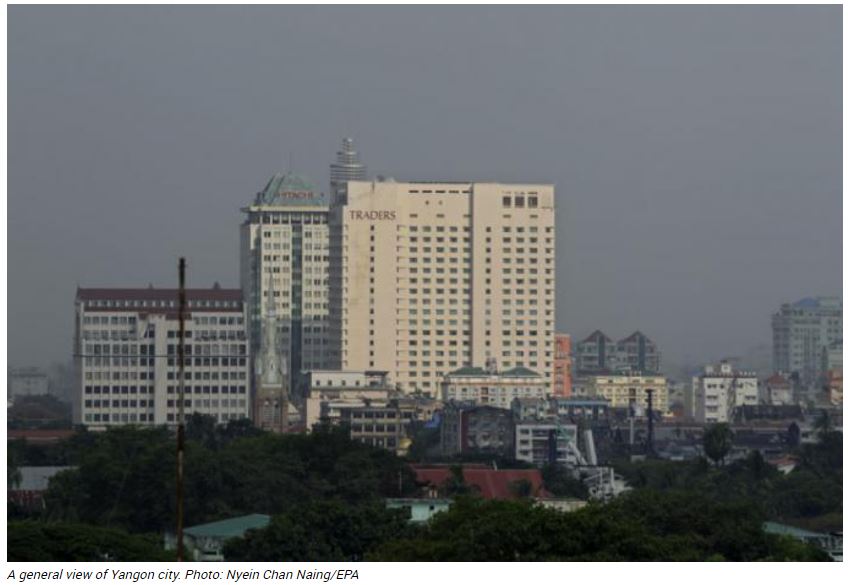Low-income Burmese face price rises on all fronts
Myanmar, as a developing country, previously had low wages but since the coup wages have dropped even further and jobs are becoming increasingly scarce.
The military is no longer able to properly administer the country and commodity prices are rising on all fronts. People are facing imbalances between income and expenditure.
After the military coup, commodity prices rose sharply in Myanmar, gold and gasoline prices skyrocketed and the value of the Myanmar kyat (MMK) against the dollar dropped. People have found that for many goods they are paying double what they were paying before the coup and are suffering hardships as a result.
The steep rise in the cost of living over the last year has affected those on the lower rungs of society the most. The incomes of casual labourers and workers who are employed and paid on a daily basis are no longer sufficient for them to survive with today’s higher prices.
A housewife from Yangon explained that the increase in costs for individual items does not seem too bad, but when you look at the price of a basket of essential goods the increase is very noticeable.
The price of an ordinary bag of rice (approximately 2 kg) used to be about 1,000 kyats, but now it has risen to 1,500 or 2,000 kyats. Previously a bottle of cooking oil cost about 2,000 kyats, but now the same bottle costs more than 3,000 kyats.
It is hard for many people to meet all their essential costs from their wages and it has become impossible to save money.
To make matters worse fares for public transport are being illegally raised.
According to passengers, posters on buses have announced a doubling of fares on some bus lines to 400 kyats, starting from 22 February. Though the previous civilian government offered a fixed fare of up to 100 kyats for city buses and 200 kyats for other routes, bus services are now charging 400 kyats to passengers paying in cash and 360 kyats to passengers using the Yangon Payment Card System (YPS card).
Lian Qingman, secretary of the Yangon Private Transport Committee (YRTC) denied that the committee had not issued a statement about the fare increase. He said that the bus companies had submitted a proposal to raise fares to the YRTC in early February, because of higher prices for fuel and vehicle spare parts, but the proposal is still being negotiated and nothing has yet been confirmed.
No matter how much the junta denies it, the bottom line is that there is chaos. Under the civilian government, there were no conductors on buses, but after the coup, the conductors returned. Passengers have to pay whatever the conductors demand and they will not let passengers pay their fares directly to the driver as they normally would. Nobody says anything because they know it will change nothing.
The daily wage of a basic worker in Myanmar is only 4,800 kyats, and currently, their daily bus fares cost around 800 kyats. People need to spend less to balance their income and expenditure but they cannot, because commodity prices are increasing. They are caught in an impossible situation.
One of the reasons for fare rises is the increase in fuel prices. Before the coup 92 Octane petrol was about 1,000 kyats a litre, but now it is more than 1,600 kyats according to the Myanmar Petroleum Association.
As a result, taxi fares have also risen. Even for the shortest trips in Yangon taxis now charge 3,000 to 3,500 kyats.
In addition, the prices of imported medication are skyrocketing. Myanmar relies on imports for nearly 70 per cent of its medication needs. People are being forced to rely on locally produced traditional medicines instead. The situation may get even worse as the number of Omicron Variant COVID-19 infections are rising and a fourth COVID-19 wave is imminent.
Sick people often rely on medication when they cannot receive treatment in a hospital. An elderly woman in Yangon said she cannot afford to buy all her medication as she did previously. She now has to prioritise and only buy her most important medication because of the higher prices.
One of the main reasons for the price rises is the lower exchange rate of the kyat against the US dollar (USD). Just before the coup, in January 2021 one USD cost about 1,300 kyats, now one USD costs about 1,780 kyats.
Similarly, the cost of a Singapore dollar (SGD) has risen from about 1,000 kyats at the time of the coup last February to about 1,300 kyats now.
Obviously, this slide in the value of the kyat on international money markets means all imports are more expensive.
The United Nations Office for the Coordination of Humanitarian Affairs (UNOCHA) says at least 14.4 million people in Myanmar will need emergency humanitarian assistance this year.
Source: https://www.mizzima.com/article/low-income-burmese-face-price-rises-all-fronts


 Thailand
Thailand




